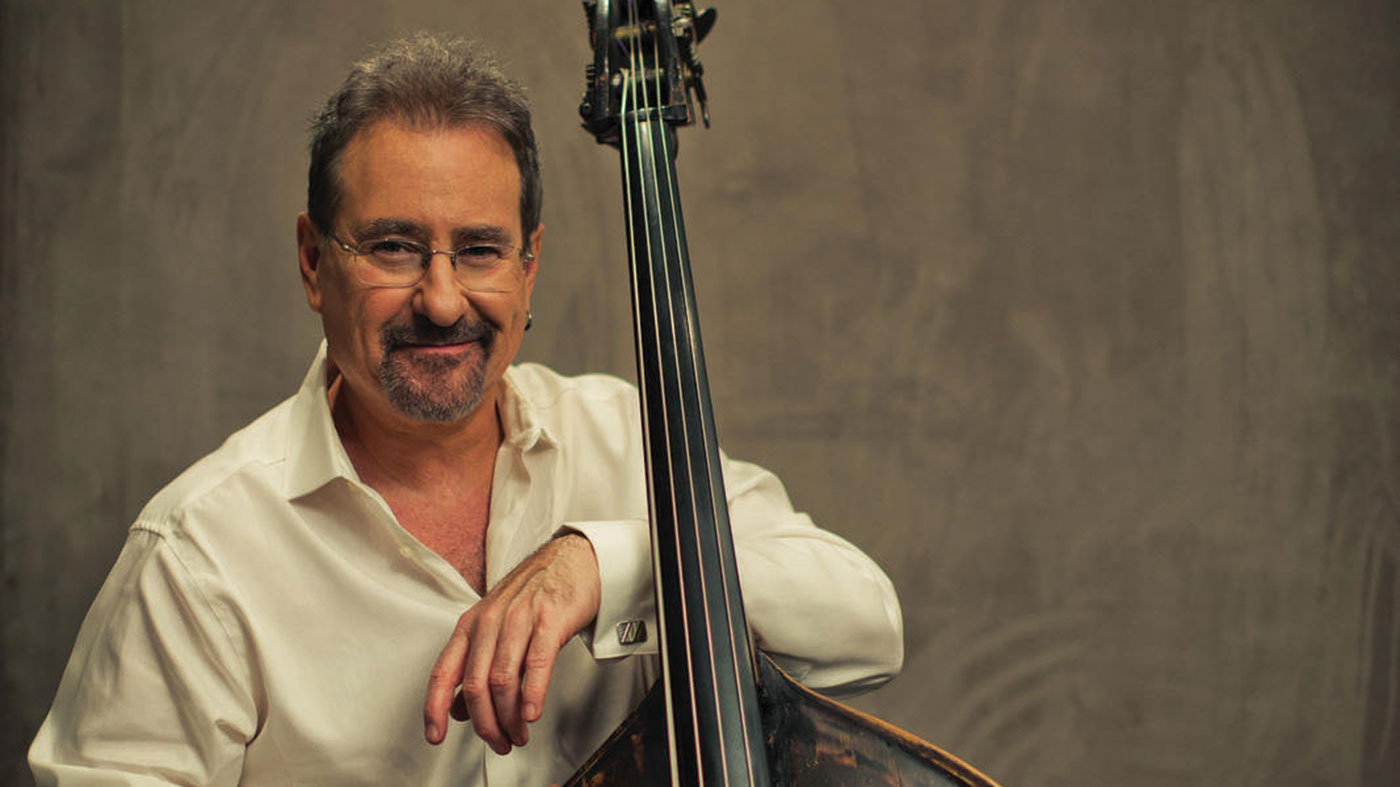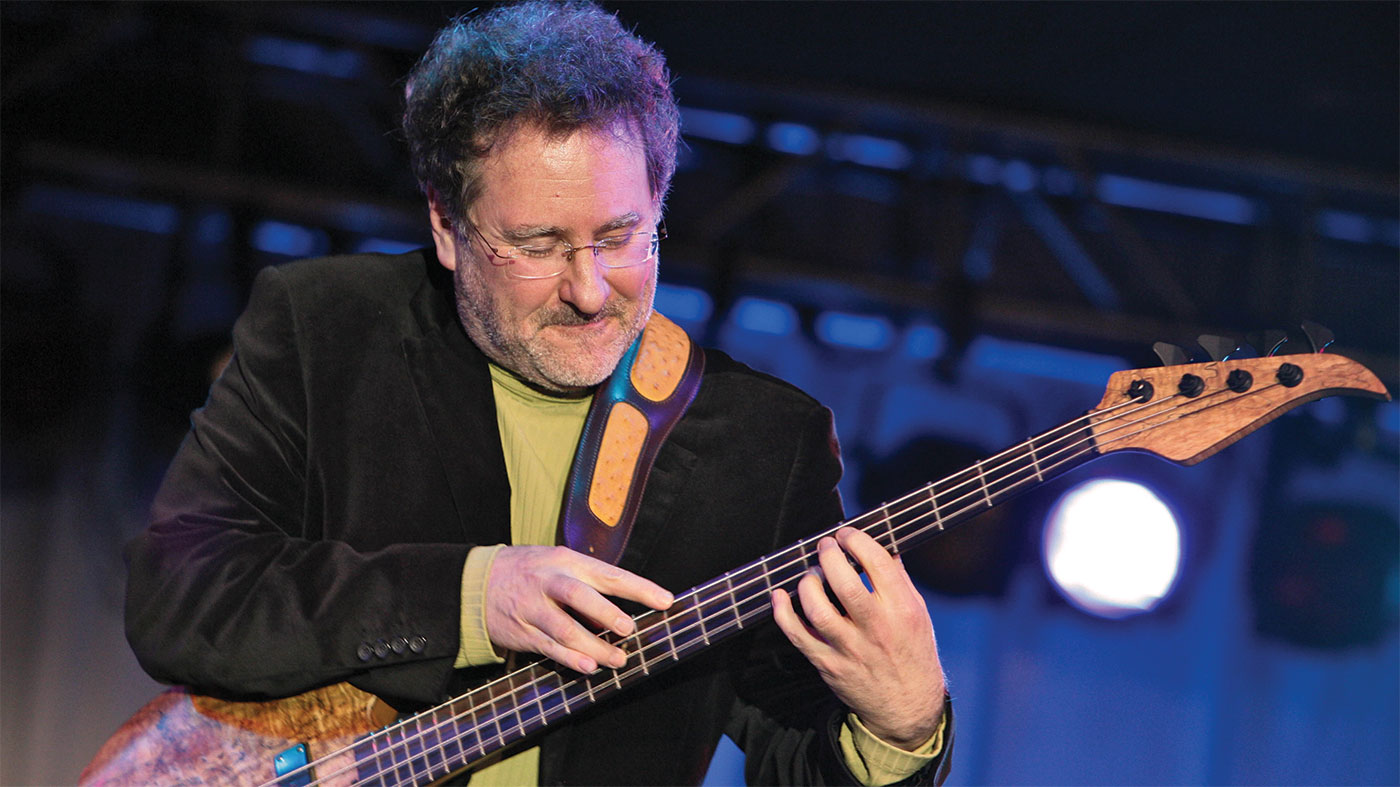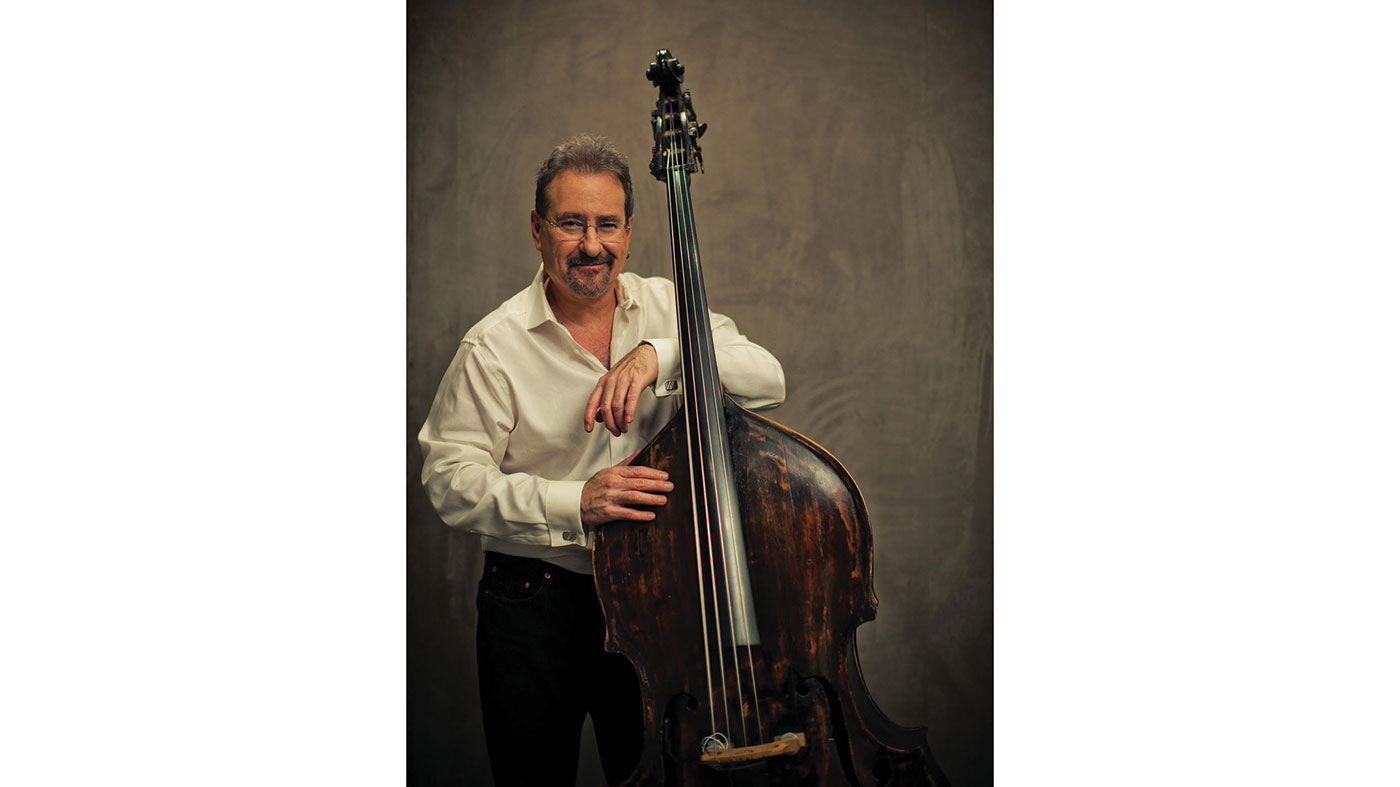Brian Bromberg: “Spending 30 years on my 300-year-old Italian upright taught me how to finesse a bass sound”
The great four-stringer on how he re-embraced the bass guitar on Thicker Than Water

Want all the hottest music and gear news, reviews, deals, features and more, direct to your inbox? Sign up here.
You are now subscribed
Your newsletter sign-up was successful
Mention the name Brian Bromberg to bass thumpers, and what generally comes to mind is the image of a virtuoso of all trades.
From his massive upright strokes on Michael Buble’s early big band hits, to cutting an album of searing Jimi Hendrix covers on overdriven piccolo bass, if it has four (or five) strings and is in the bass family, Bromberg has mastered it.
With his recent solo career focusing on acoustic jazz records, it’s no surprise that his latest effort is a return to his funky bass guitar side. What is eye and ear-opening, however, is the growth that Bromberg has shown since his last electric outing, 2009’s It Is What It Is.
My goal was to have every song groove, even the ballads, and to feature the electric bass playing melodies
The 13-track Thicker Than Water is drenched in direct, soul-baring bass playing and composition, inspired by a chapter in his life that includes dealing with the ever-changing music business, the passing of his mother, and his move north of Los Angeles to horse country.
Bromberg’s usual high production standards are in place, with real horn and string sections adding humanity and interpretation to the proceedings, and guest spots from Randy Brecker, the late George Duke, Everette Harp, Najee, Paul Jackson Jr., Brandon Fields and Marion Meadows.
Bromberg’s 40-year journey from Tucson, Arizona-born 18-year-old upright prodigy with Stan Getz, to becoming a first-call for such LA titans as Dave Grusin, David Foster, Herb Alpert and Michel Legrand, to forging a career as a fleet-fingered electric bass hero has led him to this, his 22nd solo album. Not a bad place to be at all.
Brian, Thicker Than Water moves you away from your recent jazz endeavours and more towards funk.
Want all the hottest music and gear news, reviews, deals, features and more, direct to your inbox? Sign up here.
“Yes, it’s a record I’ve been wanting to make for a while, but being on a jazz label meant playing a lot of acoustic bass. I told them I wanted to do a funk record and they gave me the green light. My goal was to have every song groove, even the ballads, and to feature the electric bass playing melodies.
“That’s why I opened with Is That the Best You Can Do? It starts with just the bass in your face, and makes it clear this is a bass record. Half of these songs are new and the other half I’ve had for years, but never found the right record to use them on.”

Party like its 1987
The inspiration for Minneapolis, 1987 seems obvious.
“It’s about everything that was coming out of the town at that time - Prince, Morris Day & The Time, Jimmy Jam and Terry Lewis. Their brand of funk was so distinctive and pervasive, and there was a heady dose of Larry Graham in it all. I’ll never forget being at Bass Player LIVE! 2011, when Larry got his Lifetime Achievement Award. He and his band started playing and the energy shift in the room was remarkable. All of that inspired this song.”
There’s a cool programmed element to the title track.
Every instrument takes up space, so I consider sonic space, register space - in other words, the range the basses are in
“That was written with my nephew, Zach Bromberg, who is a programmer, DJ and keyboardist in Los Angeles. He sent me the track and I wrote the song to it. I like that it brings a whole new element and contemporary sound to my music, and for him it’s a chance to work in the jazz and instrumental realm. We also co-wrote Changes, which features my nylon-string acoustic piccolo bass.”
You use multiple basses on most tracks. What’s the key to making that work musically and sonically?
“Every instrument takes up space, so I consider sonic space, register space - in other words, the range the basses are in - and rhythmic and melodic space. You don’t want to be competing for the same real estate, so I spread them out: five-string on the bottom, piccolo up top, maybe fretless in the middle. The fun is I’m just a bass player, not a guitarist, keyboardist or horn player, so I’ve got to figure out how to use the basses in different, non-traditional ways to make the music better. Ultimately, it’s all about the music.”
Trials And Tribulations defines your edgy playing and sound on this record.
“It’s the centrepiece of the album, blending rock, jazz and horn-led funk in a dark, emotional mix that reflects my life journey and where I’m at now. It’s been a while since my last funk record and I like to think I’ve grown since then.
“I tried to play with an honest, raw, intensity and conviction, and Kiesel did a great job with my basses in allowing me to express that. We worked on the circuit boards and pickups for a year and a half, and the basses sound very real and not processed. In addition, spending 30 years on my 300-year-old Italian upright taught me how to finesse a sound out of it without overplaying, and I’ve brought that touch and concept to all of my basses.”

Roll the tape and improvise
It’s Called Life brings to mind Pat Metheny and Lyle Mays, with its long, winding melodies played on your hollowbody piccolo.
“Those guys are certainly an influence, with their powerful melodic sense and their gift for making music that sounds simple but is actually quite difficult when you dig deeper. The piece has a linear, horizontal flow, as I wanted it not to be in a hurry. It’s an emotional ballad with a gospel tinge that I wrote in memory of my late mom; the title is a saying of hers.
“The melody came to me - or more accurately, through me, because I’m a big believer in the song being out there already and using me as a conduit. ‘Uh-Huh’ was also bittersweet because I had recorded it for a bonus track on an album years ago, and I had the late George Duke play on it. For this version, I was able to use his original Rhodes track. George is another musical giant.”
You haven’t just confined yourself to bass on this album. Your Eyes also features a piano solo from you.
“I had previously cut this with a Brazilian vibe, but I wanted to redo it with a backbeat. In making the demo for it, I played the melody on piano - I’m not a pianist but I can play a single line with one finger - and for fun I filled an empty space with a solo. I listened back later and thought, hey, that works for the song. It was simple, nicely phrased and honest.
I never plan solos or build them from different takes, they’re always spontaneous
“My lack of piano chops perhaps forced me to play musically, but I approach my bass solos the same way. I roll the tape and I improvise. If I like it I leave it, if not I do another take. I never plan solos or build them from different takes, they’re always spontaneous. The reality is if you’re creating from your heart the same idea is going come out, regardless of the instrument you’re playing. Having command of your instrument simply allows you to express yourself better.”
What happened to your internet radio station, Bass On The Broadband?
“It was a great concept that was perhaps ahead of its time. Internet radio is a new medium that people don’t understand yet, but it’s the future; before long it will be in millions of cars. We had listeners in 127 countries, and 90 percent of that audience buys bass gear. Yet I couldn’t get the bass community to fund it through gear ad sales, and it was a challenge to get music from some of the top bassists, even though I was paying radio royalties.
“Ultimately, after five years of basically funding it myself, I didn’t have the money to sustain it until everyone caught on and I learned how to do it better. But I’m proud of how it sounded, and it was rewarding to be able to give back after the fortunate career I’ve had. I may restart it at some point. The best part was hearing so many creative and inspiring bassists I would never have known about; that’s why I started the station, to give them a voice. It was a vehicle to let the bass world hear how talented the bass world is.”
Thicker Than Water is out now on Artistry Music.

